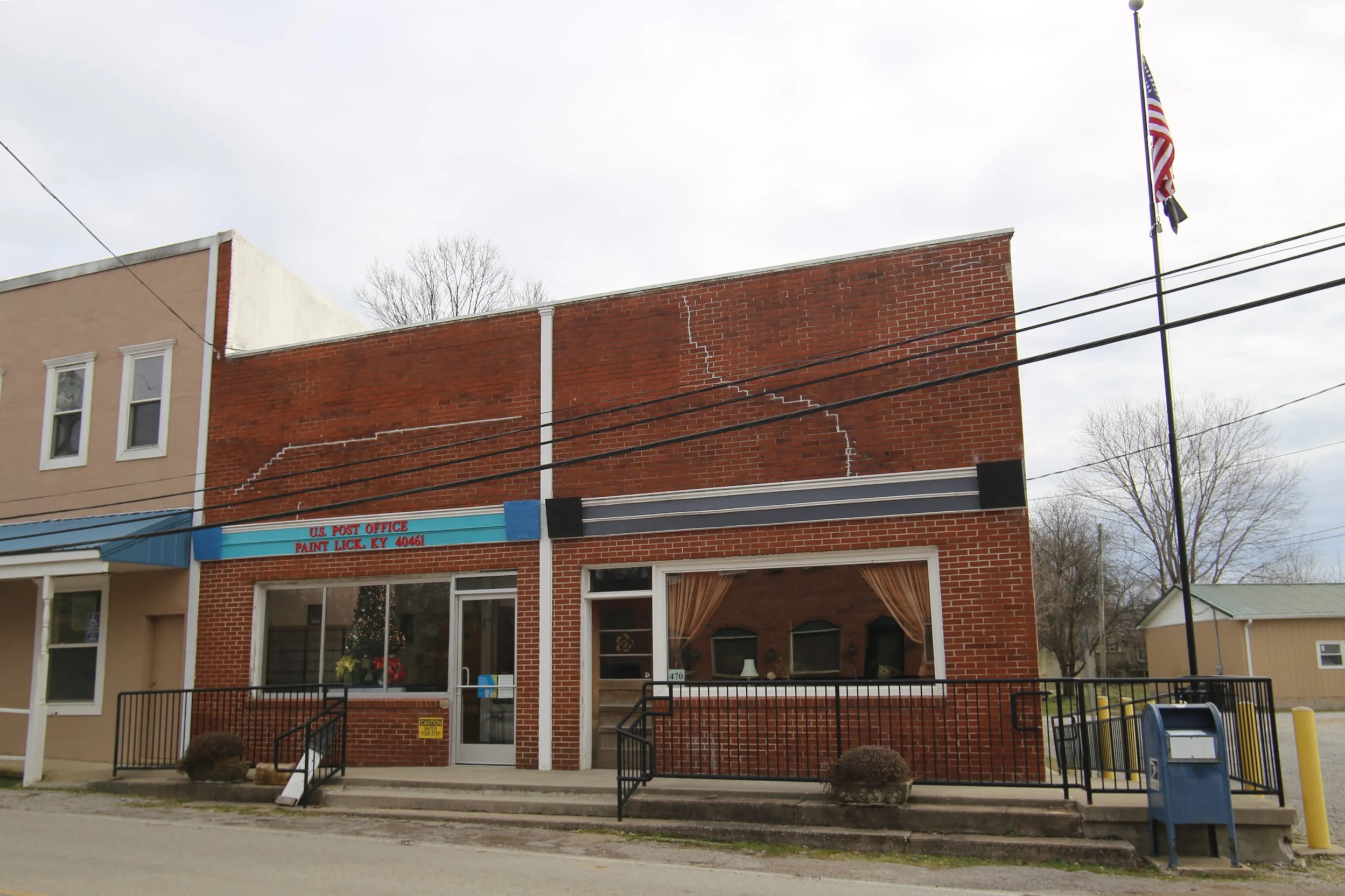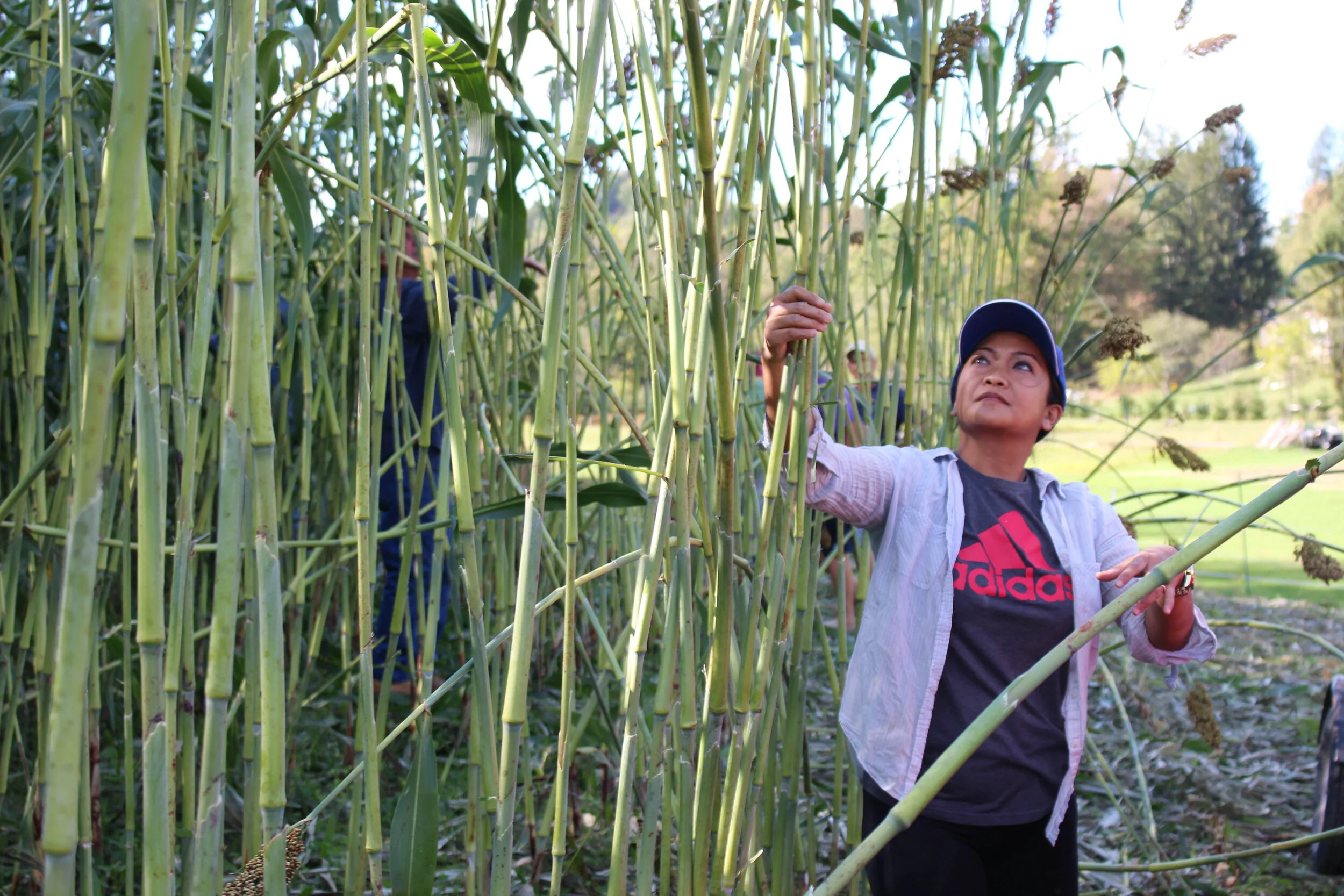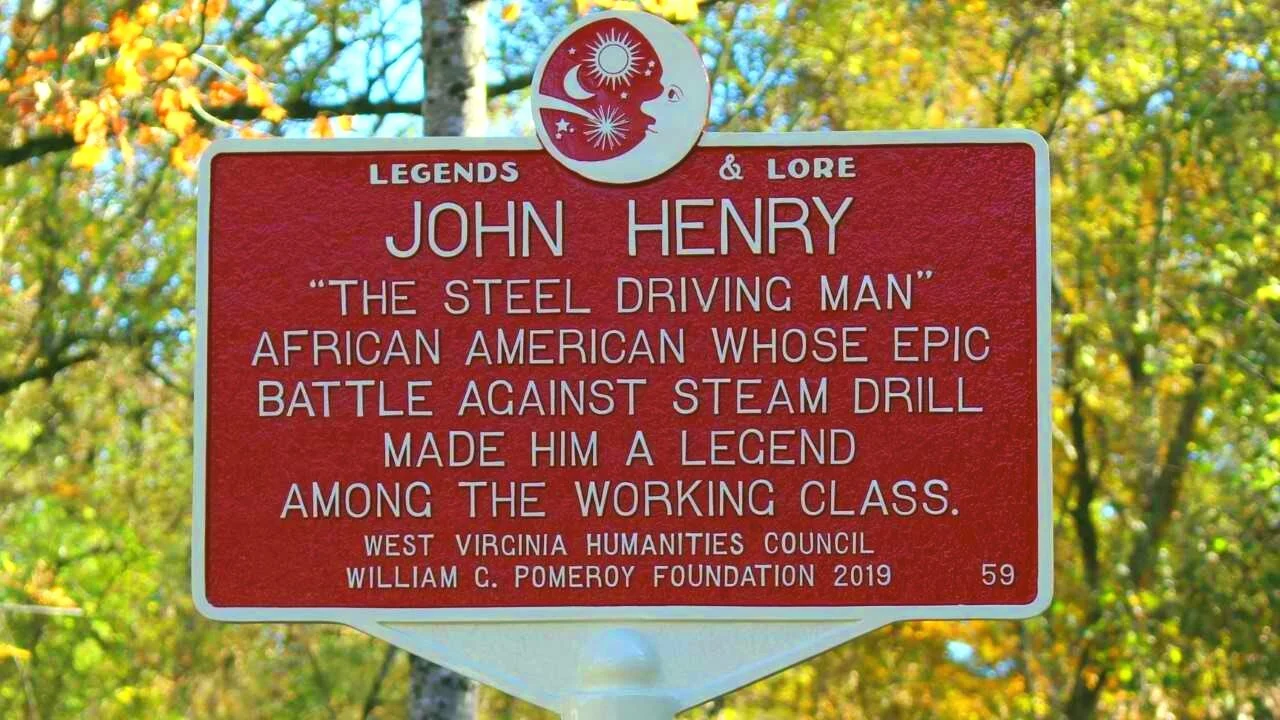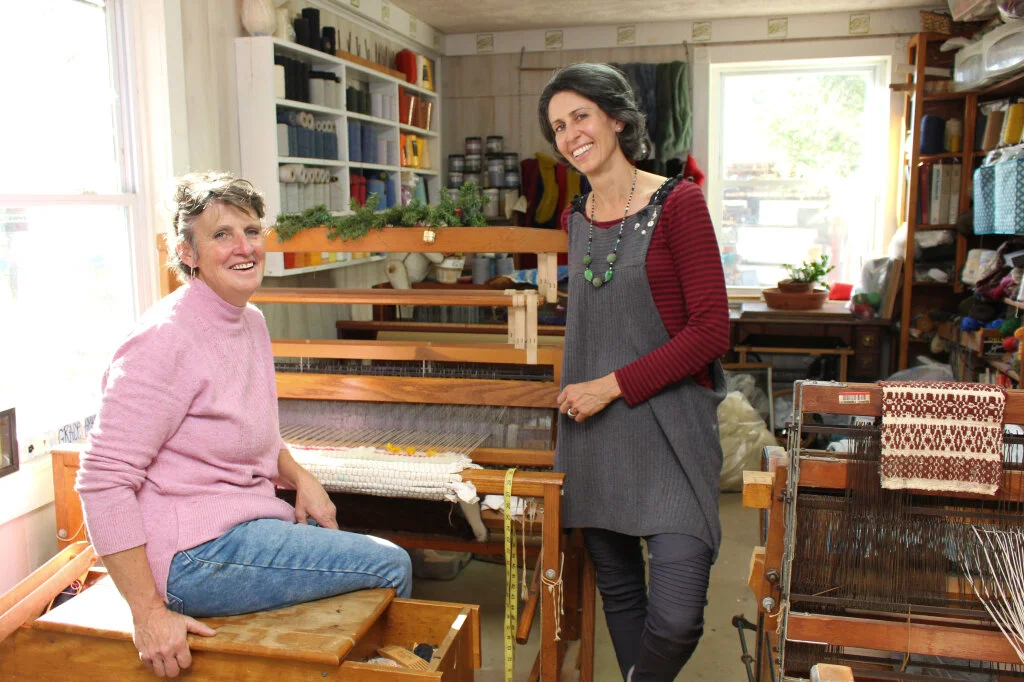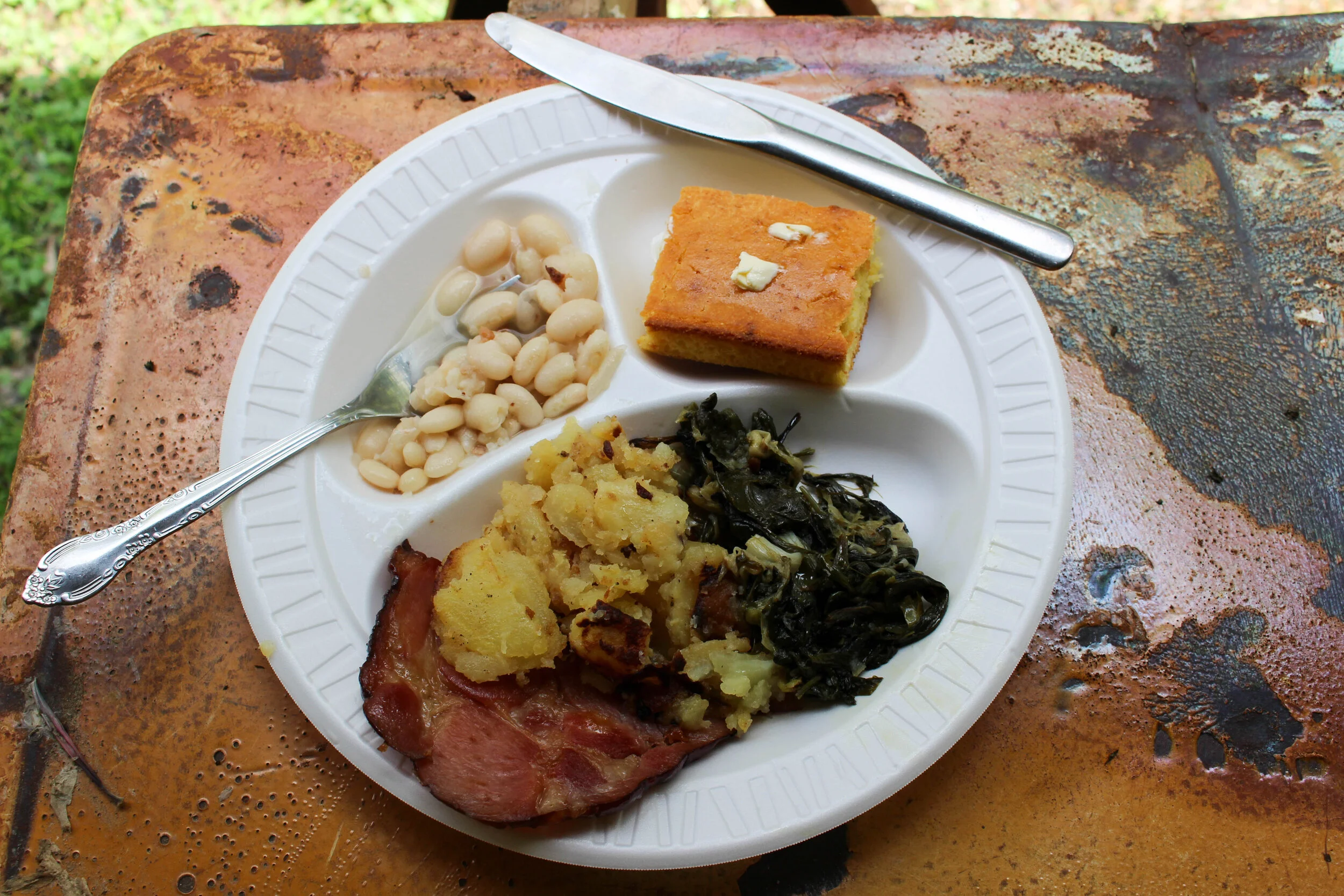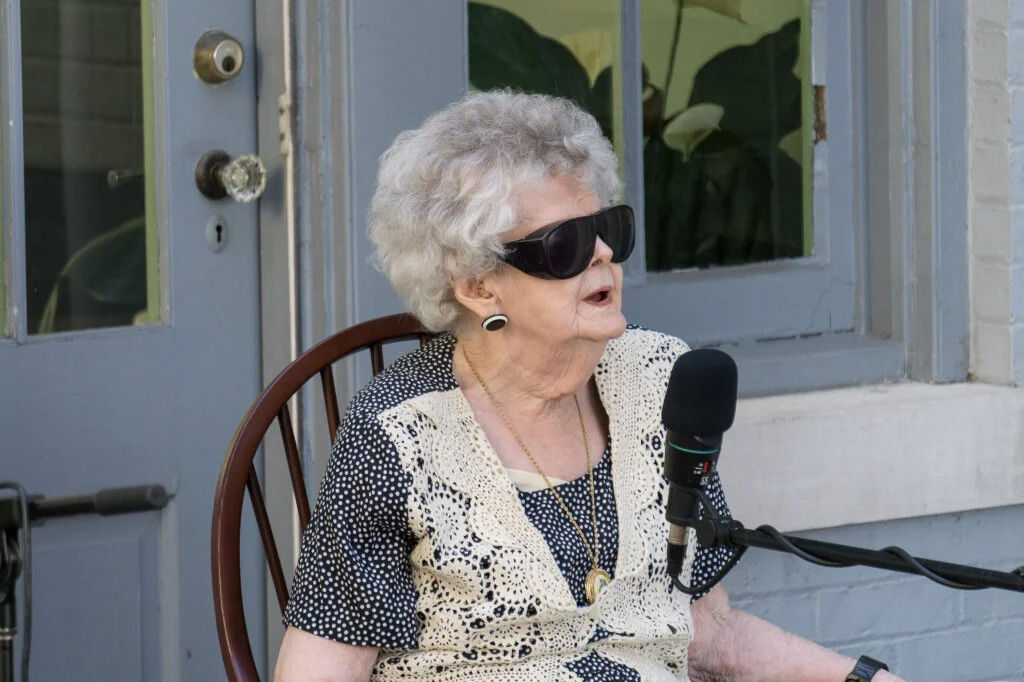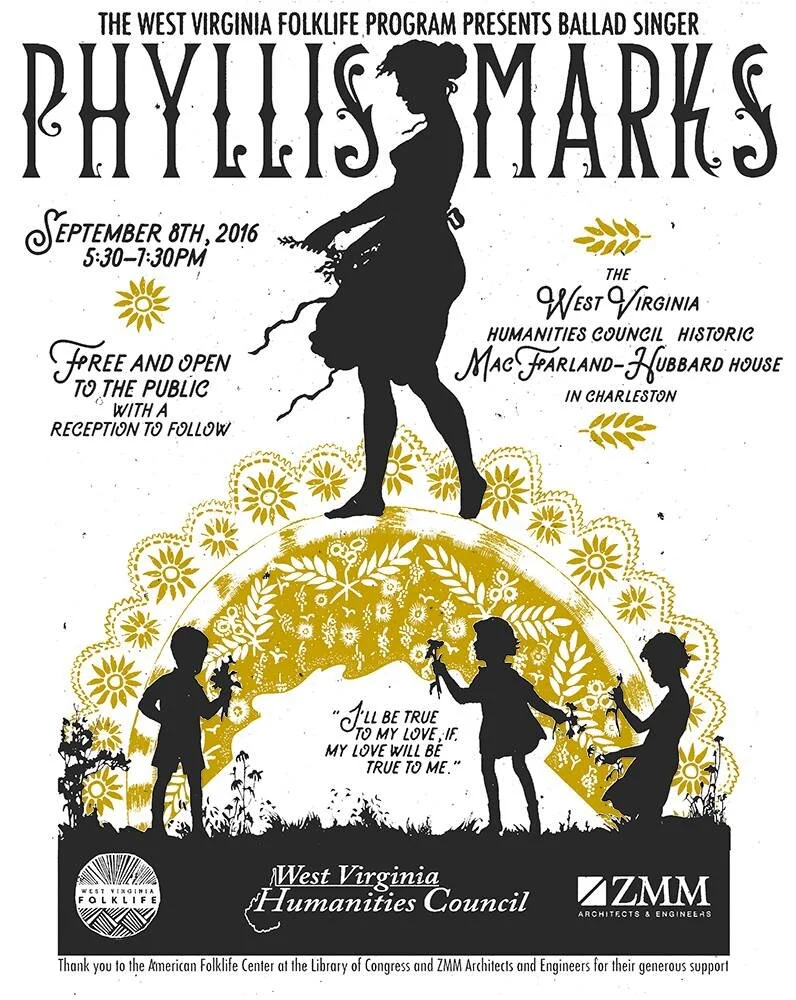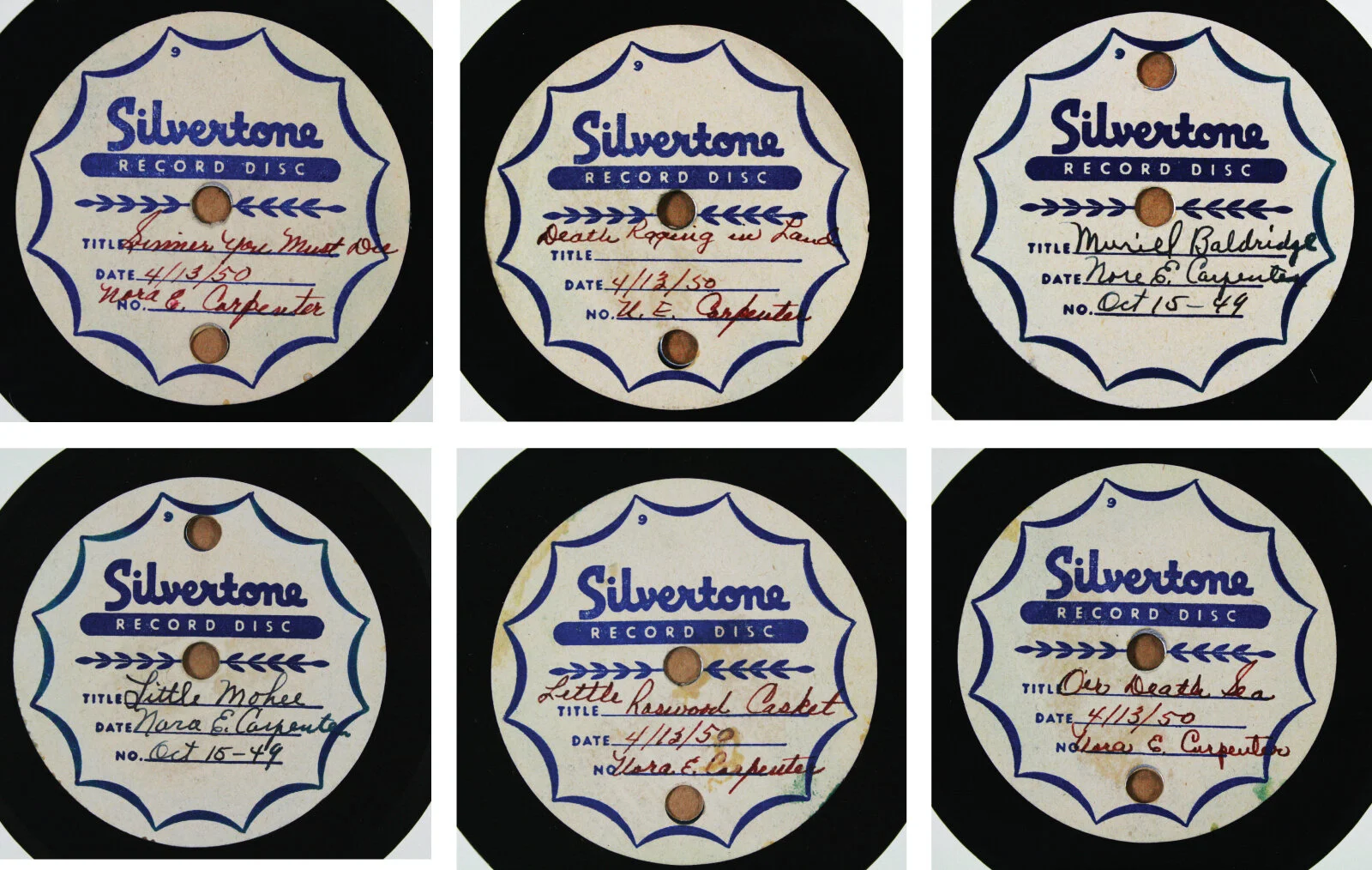Public Folklore
Exhibit graphic by Shaun Slifer; photos by Dylan Vidovich for the West Virginia Mine Wars Museum
The West Virginia Mine Wars Museum Presents “The Children of Mother Jones: West Virginia Educators’ Strikes as Care Work”
Exhibit Narrative Writer, 2023-2025
From 2023-2025, the West Virginia Mine Wars Museum presented the Solidarity Gallery exhibit, The Children of Mother Jones: West Virginia Educators’ Strikes as Care Work, a tribute to the resolve and solidarity of West Virginia educators and service personnel who stood up to protect the future of public education. The exhibit, designed by Mine Wars Museum Creative Director Shaun Slifer, with oral histories by Nicole McCormick, and exhibit narrative by Emily Hilliard (drawing from her book Making Our Future: Visionary Folklore & Everyday Culture in Appalachia) tells the story of the historic and powerful educators’ strikes that took place in 1990, 2018, and 2019 through an exhibit of homemade protest buttons, signs, t-shirts, songs, chants, and memes created and donated by West Virginia teachers.
Explore the online exhibit at https://wvminewars.org/edstrike.
Read Shaun Slifer’s essay on creating the exhibit via Just Seeds.
Paint Lick Post Office in Garrard County, Kentucky
Rural Free Delivery: Mail Carriers in Central Appalachia
American Folklife Center at the Library of Congress Archie Green Fellowship, 2021-2022
On March 14, 1973, a short film called “Appalachian Mailman” aired on the PBS children’s show Sesame Street. The clip featured Irvine Pratt, a blacksmith and one of the last mail carriers in Appalachia to deliver by horseback, on his rugged and mountainous daily 18-mile route from Pinetop to Holly Bush in Knott County, Kentucky. In 1973, Pratt was an important lifeline for his community members, who may have lacked transportation to make the trip to the Pinetop post office themselves, relied on mail delivery of goods and supplies to their mountain homes, and perhaps awaited news from their loved ones serving in Vietnam.
Though mail carriers are no longer delivering by horseback (areas around the Grand Canyon are the only United States Postal Service routes still using animal power), nearly 50 years later, rural mail delivery to communities in Appalachia is still just as important, if not more so. In a region where 54.8 percent of the population lives in rural, mountainous areas, the demographic is predominantly poor and aging, and broadband access is insufficient, individuals rely on United States Postal Service (USPS) mail carriers to pay bills, receive life-dependent prescription medications, communicate with loved ones, and for “last mile” delivery of shipments from Fed-Ex, UPS, and Amazon. An October 2020 National Geographic article, “America’s postal service is a rural lifeline—and it’s in jeopardy,” reports that rural mail carriers consider themselves first responders, “often keep[ing] an eye on seniors, sometimes in communication with adult children who have moved away.”
This occupational folklife project documents the expressive culture and experiences of 25 rural mail carriers and clerks (formerly known as postmasters) in the upper mountain South (VA, WV, KY, OH, NC), the region which birthed the country’s first rural free delivery route in 1896. Rural Free Delivery focuses in particular on the function rural postal workers serve as important resources in their community, as well as how their place of work—rural post offices—are invaluable community hubs in remote rural areas. Additionally, the project explores how long-time rural carriers have witnessed changes in their work, community, and landscape, across their career.
Collected interview recordings, photos, and other materials from this project are now part of the Occupational Folklife Collection at the Library of Congress. Read an interview about the project on the American Folklife Center blog.
Retired Virginia rural mail carrier and NEA National Heritage Fellow Wayne Henderson standing in his Rugby, Virginia guitar shop, in front of his old mail case, which he now uses to track guitar orders
West Virginia rural mail carrier Steve Honaker stands by his mail vehicle at an area along his route. Photo by Steve Honaker.
Lorelei Nicolas-Tenney harvests sorghum at Appalachian Acres farm in Upshur County, West Virginia
West Virginia Folklife Program
State Folklorist, Founding Director, 2015-2021
The mission of the West Virginia Folklife Program, a project of the state humanities council, is to document, sustain, present, and support West Virginia’s vibrant cultural heritage and living traditions. The program is supported in part by the National Endowment for the Arts (NEA) Folk & Traditional Arts Program. Learn more at wvfolklife.org. My work with the West Virginia Folklife Program included:
The development and direction of a dynamic state folklife program through statewide fieldwork and outreach with traditional artists, practitioners, and cultural communities
Fostering media partnerships with organizations including West Virginia Public Broadcasting, West Virginia University, The Southern Foodways Alliance, and The American Folklife Center
Establishing the West Virginia Folklife Collection at West Virginia University Libraries, an archival collection of over 2,500 items documenting the vernacular culture, occupational skills, and creative expressions of contemporary tradition bearers, folk artists, and cultural communities across West Virginia; one of the few archival collections devoted to contemporary culture in Appalachia
Fostering and managing partnership and project grants from the NEA and other funders, including the West Virginia Folklife Apprenticeship Program, and the Legends & Lore Roadside Marker Program
Hosting public interest meetings, lectures, classes, concerts, and oral history workshops in communities across the state
Facilitating a strong communications network, including active social media platforms which grew to 9,000+ followers under my direction
The Legends & Lore Roadside Marker Program commemorates folklore and cultural heritage across West Virginia
The West Virginia Folklife Apprenticeship Program offers a stipend to West Virginia master traditional artists or tradition bearers working with apprentices on a year-long in-depth apprenticeship in their cultural expression or traditional art form.
Helvetia Foodways Oral History Project, Southern Foodways Alliance
Project Director, 2017
This collection of oral histories conveys the values of a fiercely creative and productive close-knit West Virginia mountain community where Swiss and Appalachian heritage are uniquely twined and enacted daily in a bite of sauerbraten, a sip of homemade wine, and many generations sitting around a Hütte table. The Helvetia Foodways Oral History Project was conducted as a partnership between the West Virginia Folklife Program and the Southern Foodways Alliance. See the full project here.
Gilmer County, West Virginia ballad singer Phyllis Marks in concert, September 8, 2016. Photo by Mike Keller.
West Virginia Folklife Presents Ballad Singer Phyllis Marks
American Folklife Center at the Library of Congress Henry Reed Fund Award Recipient, 2016
The American Folklife Center’s Henry Reed Fund was established in 2004 in honor of old-time fiddler Henry Reed with an initial gift from founding AFC director and fiddler Alan Jabbour. The fund provides small awards to support activities directly involving folk artists, especially when the activities reflect, draw upon, or strengthen the archival collections of the AFC.
I was awarded funds for “West Virginia Folklife Presents Ballad Singer Phyllis Marks,” a public programming and documentation project highlighting the career and contributions of the respected octogenarian West Virginia traditional ballad singer Phyllis Marks.
The documentation of this September 2016 free public concert is now among the holdings of the Archive of Archive of Folk Culture, American Folklife Center at the Library of Congress as the Emily Hilliard Collection on West Virginia Ballad Singer Phyllis Marks. The collection includes audio recording, video recording, digital photographs, concert program, and an oversize poster, and is available for research and public viewing via the Library of Congress.
Poster designed by Dan Davis of Kin Ship Goods
Phyllis Marks performs the Child ballad, “Bow and Balance to Me” (aka “Two Sisters”), which she learned from her mother. September 8, 2016.
Written and Composed by Nora E. Carpenter: Song Lyric Scrapbooks, Home Recordings, and Self Documentation
Berea College Sound Archives Fellow, 2014-2015
Through a 2014-2015 Berea College Sound Archives Fellowship, I conducted an in-depth study into the music and life of Magoffin County, Kentucky musician, songwriter, radio show host, and band leader Nora E. Carpenter. To the existing Carpenter collection, I donated three recorded interviews I conducted with with Carpenter’s family members and a collection of home disc recordings, which have been digitized and added to Berea’s online traditional music collections. My article on Nora Carpenter was published in the Spring 2016 Documentary Arts issue of Southern Cultures.



